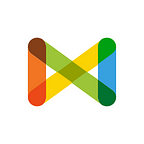How Check Supports Collaborative Journalism & Investigations
By TOM TREWINNARD and AN XIAO MINA
A little over 9 months ago, we embarked on an ambitious mission: build Check, our platform for collaborative verification of digital media, from the ground up, with a new codebase and design updated for modern software standards. We made the leap because we realized that, despite the fact that our software had been running successfully for a number of partners, it needed a fresh update to support emergent use cases at scale.
Since the relaunch, we’ve worked with world-class partners with diverse backgrounds across newsrooms (ProPublica, Electionland, CrossCheck), human rights organizations (Amnesty International) and universities (University of Hong Kong, UC Berkeley) to refine features that support collaboration between both small, tightly knit teams and large, interdisciplinary networks. We even had a chance to work with students from Northwestern University’s new SF campus to review and refine features.
Check is now used to annotate, geolocate and verify citizen video from Syria; to debunk false claims and hoax stories ahead of elections in Hong Kong and France; and to train the next generation of journalists in digital investigative skills.
Features for Collaboration
Early versions of Check included the ability to add a piece of digital content — a Tweet, an Instagram post, a YouTube video — and create a log of research activity. This log reflects one of the core values of Check: show your work. By showing their work, researchers can help build trust amongst their collaborators and amongst their audiences.
In the new Check, we’ve built on this basic logic and added a few new core features:
- More Flexible Items for Investigation: In addition to social media, we now have the ability to upload an image, or add a direct quote from a source. This gives investigators more flexibility with the content they want to look at.
- Tasking: Now, in addition to a log, users can create a set of questions that they need answered for each post. This might be, for instance, a free form question like “What is the motivation of the person posting this?”, or it might be a structured, yes/no question like “Is this an original photo?” Each team has their own set of questions they need answered for every item added to Check.
- Slack Integration: Today, newsrooms increasingly rely on Slack to organize their real time communications and daily taskflows. We’ve built Check to work closely with Slack. Any activity on Check gets sent to Slack through its notification system, and we’re soon adding an “Add to Slack” button, so that users can easily add a Check URL directly to Slack to alert their team about activity.
Outcomes
How has Check been used so far? During the Electionland project, 600 professional and students journalists came together to use the platform to investigate reports of voter challenges on US Election Day.
In total, they looked at 1200 reports, authenticating them within the course of an hour, on average. Through this process, some 300 stories were generated.
For CrossCheck, a project led by First Draft to annotate and analyze misinformation ahead of the French elections, 34 French newsrooms have reported over two dozen stories so far, with many more in the pipeline. Similarly, the University of Hong Kong’s journalism school has been adding a significant number of reports directly from WhatsApp, WeChat, and other social networks while training their students in verification best practices.
Amnesty International has incorporated Check as the central verification workbench for its pioneering Digital Verification Corps, a growing network of universities whose students have been trained in open source investigation techniques for human rights, and who support the work of Amnesty researchers into human rights violations and conflicts around the world.
As you can see, Check shines in a collaborative environment, helping amplify and connect skillsets in a way that improves both the research process and, we hope, the outputs of that process. Moving forward, we’re most interested in the opportunity to have more interdisciplinary conversations amongst journalists, researchers, and students.
Today, the ProPublica-led Documenting Hate project aims to document hate incidents across the United States. Students will be gathering reports from social media that will help both journalists and researchers understand these reports in context with data collected by organizations like SPLC, CAIR and others.
To request early access to Check, get in touch here.
